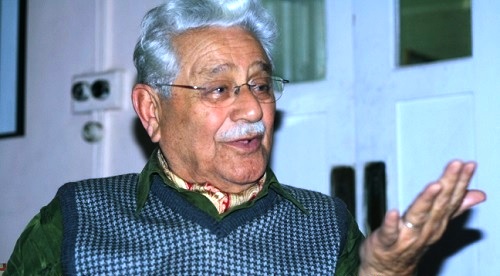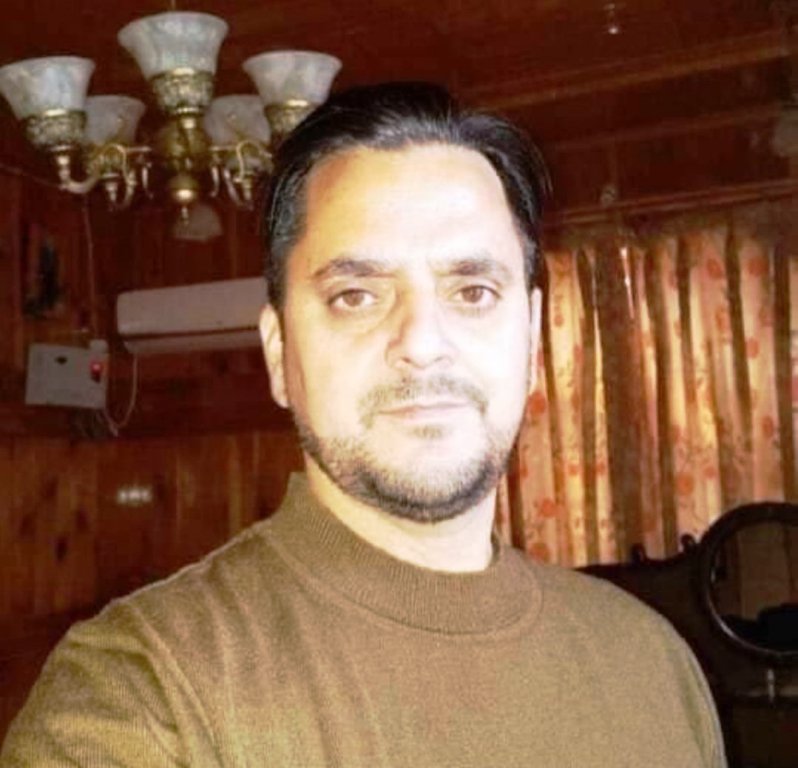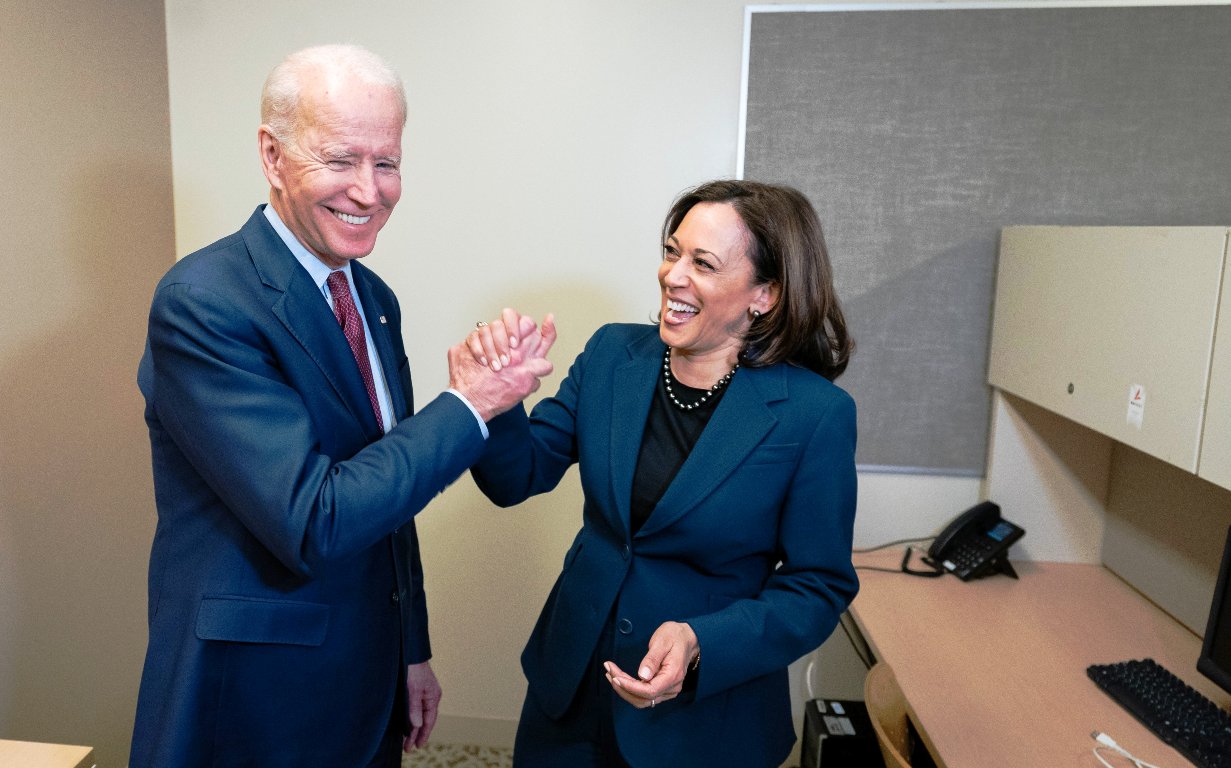RAJBAGH

Young at heart, easily eloquent, warm and welcoming, noted Kashmiri academician, Agha Ashraf Ali died at 98. Internationally acclaimed, Aga has worked tirelessly for the education of people of Kashmir. He is believed to have revolutionised the knowledge-seeking sources for the people. He brought that academic acuity to Kashmir in the early 1950s, that there was a paradigm shift in the outlook of the natives. With an illustrious career, at the age of 28, he was appointed the inspector of schools in 1951. He later took a job as Principal, National Extension Training Centre, to train village-level workers. In 1960, he got a Fulbright Fellowship and went to the USA for his PhD. He was later appointed as the first Chairman of the Board of School Education. After his retirement, he continued to disseminate his knowledge and share his insight, sense, and sensibility through lectures in universities, colleges, and schools. Witnessed to the happenings in Kashmir from close quarters, his grandfather was the only minister in the Dogra government and his mother the first woman inspector of schools. Survived by two daughters and a son, Aga was the father of late poet Aga Shahid Ali. Devoted to his wife, who hailed from Lucknow, her death many years ago had made a void in life. The loss of his son Shahid to cancer shattered the man with a golden heart. Kashmir mourned Agha’s death widely.
PAMPORE

Fighting on the frontline without fear since the Coronavirus outbreak, a doctor from Pampore posted at Pulwama did everything possible to treat his patients. Not concerned about his safety, he was working hard to ensure the well-being of sick around. Finally, one day, Dr Muhammad Ashraf Mir felt tired and feverish. But he continued what he loved to do, treating patients of the Covid ward in the district hospital. A young man in his forties later developed severe symptoms and tested positive for the virus. Admitted to SKIMS Soura, his condition deteriorated on each passing day. The doctors treating their colleagues tried everything to revive him. He was given plasma shots as well. Days later, he tested negative but the damage had been done. He could not manage to breathe. In an attempt to sustain, he was put on a ventilator on his own request where he finally passed away, peacefully. Survived by his mother, two kids, and a wife, he was a source of sustenance to his extended family. His death as his colleagues described as a shock. Shattered, he was laid to rest at his ancestral graveyard. The question, however, remains, about the safety, security, and survival of all those warriors who are at the forefront trying to help mankind fight the virus, efficiently. Authorities have now announced a compensation of Rs 75 lakh for health workers who die fighting Covid-19.
INDORE

His 2000 dhuan dhuan in Mission Kashmir was the song that connected poet Rahat Indori with Kashmir. Fearless and engaging, a painter-turned-professor-turned-poet, he was born on January 1, 1950, in Indore Madhya Pradesh to Rafatullah Qureshi, a cloth mill worker, and his wife Maqbool Un Nisa Begum. He was named as Raahat Qureshi. As life proceeded, he conquered many battles and finally settled as a poet. Internationally acclaimed and widely travelled person, he was known for his sharp-witted one-liners on live stage performances. Being in the field of playing with words, he finally contracted the deadly Coronavirus. The news he shared himself on Twitter. Hours later when he was being treated in Aurobindo Hospital, he suffered two major heart attacks. Doctors could not revive him. Voice of millions, he spoke his heart out, always. During anti-CAA protests, his verses, “Sabhi ka khoon hai shaamil yahaan ki mitti mein, kisi ke baap ka hindostaan thodi hai (Everyone’s blood flows into its soil; no body owns this country),’ became popular country wide. He was the known voice that defended the dissent.
MUZAFFARABAD
Next time, if there is an option to pursue medicine from Pakistan administered Kashmir (PaK), remember it has been declared invalid. In a public notice issued by the Medical Council of India (MCI), it has been stated that the degrees awarded by medical colleges in PaK will not be recognised by India. The announcement comes months after the J&K High Court asked the MCI and External Affairs Ministry to review its stand to see if students who study medicine in these territories will be allowed to practice. This was in response to a Kashmiri woman’s petition who studied medicine in PaK but was disallowed to sit for the examination meant for those who studied abroad. The notice mentions that “Pakistan is in the illegal and forcible occupation of a part of the territory… Accordingly, any medical institution in Pakistan occupied Jammu & Kashmir and Ladakh (PoJKL) requires permission /recognition under the Indian Medical Council Act, 1956. Such permission has not been granted to any medical college in PoJKL.”
SRINAGAR

Erstwhile state’s top babu, B V R Subrahmanyam, who has almost spent two years heading the bureaucracy in Jammu and Kashmir triggered a tsunami in Kashmir’s silent political landscape. His remarks about the politicians of the place evoked criticism from the political class. He in his conversation with visiting media from Delhi had said that “not a single soul cried” over the detention of mainstream political politicians after J&K’s special status was abrogated in August last year. Not only this, but he also accused the leaders across the political spectrum of pushing J&K into the abyss of “corruption, misgovernance, and unbelievable levels of fraud.” He termed the erstwhile state as “broken” where there was no system in place. Reacting to his assertions, he was said to “discredit and dismantle the mainstream in J&K. the politician who once ruled the state advised Chief Secretary “hope you focus on your job rather than dabbling in politics.”
NOWGAM

As security drill was almost complete and full dress rehearsals were done for August 15, militants struck. It happened in the Nowgam area of Srinagar outskirts. A day before the actual function, three cops were injured in an attack executed in the Gulshan Lane. Swiftly shifted to the nearby hospital, two of them succumbed to grave injuries. Identified as Ishfaq Ayoub and Fayaz Ahmad, the slain duo belonged to IRP’s 20 battalion. The injured were identified as Muhammad Ashraf. Immediately after the attack, the whole area was cordoned off. Present on the spot, Kashmir police chief Vijay Kumar said that Jaish-e-Muhammad outfit is behind the attack, and “police will neutralize attackers professionally.” As a matter of decadal routine, August 15 and January 26 are days of a high-security alert in the valley.
WASHINGTON

Vocal on Kashmir with emphasis on the protection of Human Rights, an Indian descent 55-year-old Kamla Devi Harris has scripted history. May firsts to her credit, she has become the first African-American woman and the first person of Indian origin to be nominated to a national office by a major US political party. Initially, in a presidential race, she later abandoned saying she lacks enough resources. A strong lady, she has her opinion about Kashmir. Whenever she was asked about India’s Kashmir decision, she backed the demand for intervention. She, in a statement of support, said: “it is about reminding people that they are not alone, that we are watching.” Critical of the situation that emerged in Kashmir after the revocation of Article 370, it is believed that her stand on Kashmir may increase concerns in Delhi. The last time she had interaction with Delhi diplomats, she backed her Indian-American Democratic Colleague Pramila Jayapal’s right to be in a meeting, despite the objection of Indian external affairs minister S Jaishankar. Now it is to be seen post-November that if Joe Biden wins, what would be the impact?















